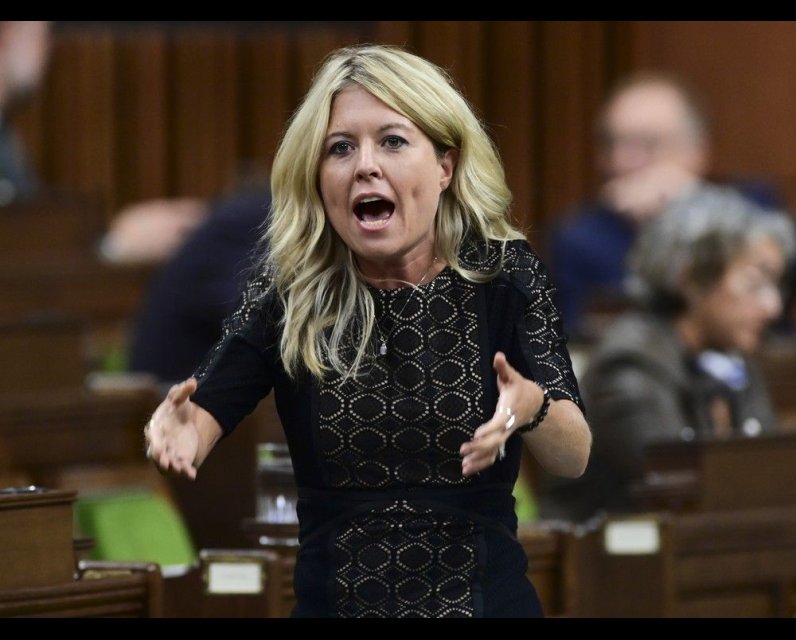Conservatives aiming to amend Criminal Code so immigration status won't be a factor in sentencing

When Parliament resumes this fall, a Conservative MP says her party will introduce legislation to end consideration of immigration status when a judge is sentencing a convicted criminal who is not a citizen.
Michelle Rempel Garner, MP for Calgary Nose Hill and shadow minister for Immigration, said the practice has essentially resulted in a two-tier justice system that allows non-citizens to get lighter sentences than Canadians convicted of the same crime.
“This offends all principles of fairness that should be foundational to our justice system,” Rempel Garner said at a press conference in Ottawa on Wednesday.
— Michelle Rempel Garner (@MichelleRempel) August 13, 2025
She pointed to a 2013 Supreme Court of Canada decision that she says has permitted judges to consider immigration status at the sentencing stage of a case.
In that case, R. v. Pham , the accused was a non‑citizen, convicted of two drug‑related offences. The trial judge imposed a sentence of two years’ imprisonment. However, the Supreme Court noted that under the Immigration and Refugee Protection Act, a non‑citizen sentenced to a term of imprisonment of at least two years loses the right to appeal a removal order against him or her.
In reducing Pham’s sentence, the Supreme Court ruled that “collateral immigration consequences” are relevant factors that a sentencing judge may take into account in determining an appropriate sentence, but added that those consequences should not influence whether or not deportation occurs.
Rempel Garner cited a few recent cases that relied on the Pham ruling in handing down a sentence. In the first example, a permanent resident was convicted of trying to buy sex from a police officer posing as a 15-year-old in an online sting operation.
The Crown sought a 90-day jail sentence. Ontario Court judge Paul O’Marra wrote that a criminal record would likely prevent the offender from sponsoring his wife to also become a permanent resident, as well as delay the offender’s eligibility for Canadian citizenship and jeopardize his ability to become a licensed engineer.
O’Marra concluded that “a custodial sentence would be unduly harsh” and instead handed down a conditional discharge with 12 months of probation, which included three months of house arrest. In establishing the basis for his reasoning, he wrote: “The Pham decision stands for the principle that collateral consequences, while not determinative, can justify a lower sentence within the legal range to avoid disproportionate hardship,”
In an Alberta case cited by Rempel Garner, a man in Canada on a visitor’s permit was accused of groping an 18-year-old woman in a nightclub twice. The judge ruled that “in consideration of the devastating collateral immigration consequences to recording a conviction, I conclude that the appropriate sentence for Mr. Singh is a conditional discharge with a probation order of maximum duration, 3 years.”
Rempel Garner insists that when “it comes to sentencing non-citizens, Canada has essentially adopted a system of two-tier justice where judges can and have given lighter sentences to individuals who are non-citizens.”
The Conservatives are proposing a bill that would prohibit immigration discounts in sentencing. Great news!Courts have been more lenient on non-citizens since 2013, at times going light on sex offenders to help them remain in Canada. That can change if Parliament wills it. https://t.co/jFNgxxKT3k
— Jamie Sarkonak (@sarkonakj) August 13, 2025
Rempel Garner said the Conservatives intend to introduce legislation to amend the Criminal Code. “Our bill will add a section after Section 718.202 … which will expressly outline that any potential impact of a sentence on the immigration status of a convicted non-citizen offender, or … their family members, should not be taken into consideration by a judge when issuing a sentence.”
Acknowledging that the vast majority of immigrants and temporary residents in Canada abide by the law, she said “removing non-citizens convicted of serious crimes is a no-brainer. Conservatives will always fight to protect Canadians, the value of our citizenship and the safety of every person who lives here. Becoming a Canadian is a privilege, not a right.”
Our website is the place for the latest breaking news, exclusive scoops, longreads and provocative commentary. Please bookmark nationalpost.com and sign up for our daily newsletter, Posted, here.


Comments
Be the first to comment